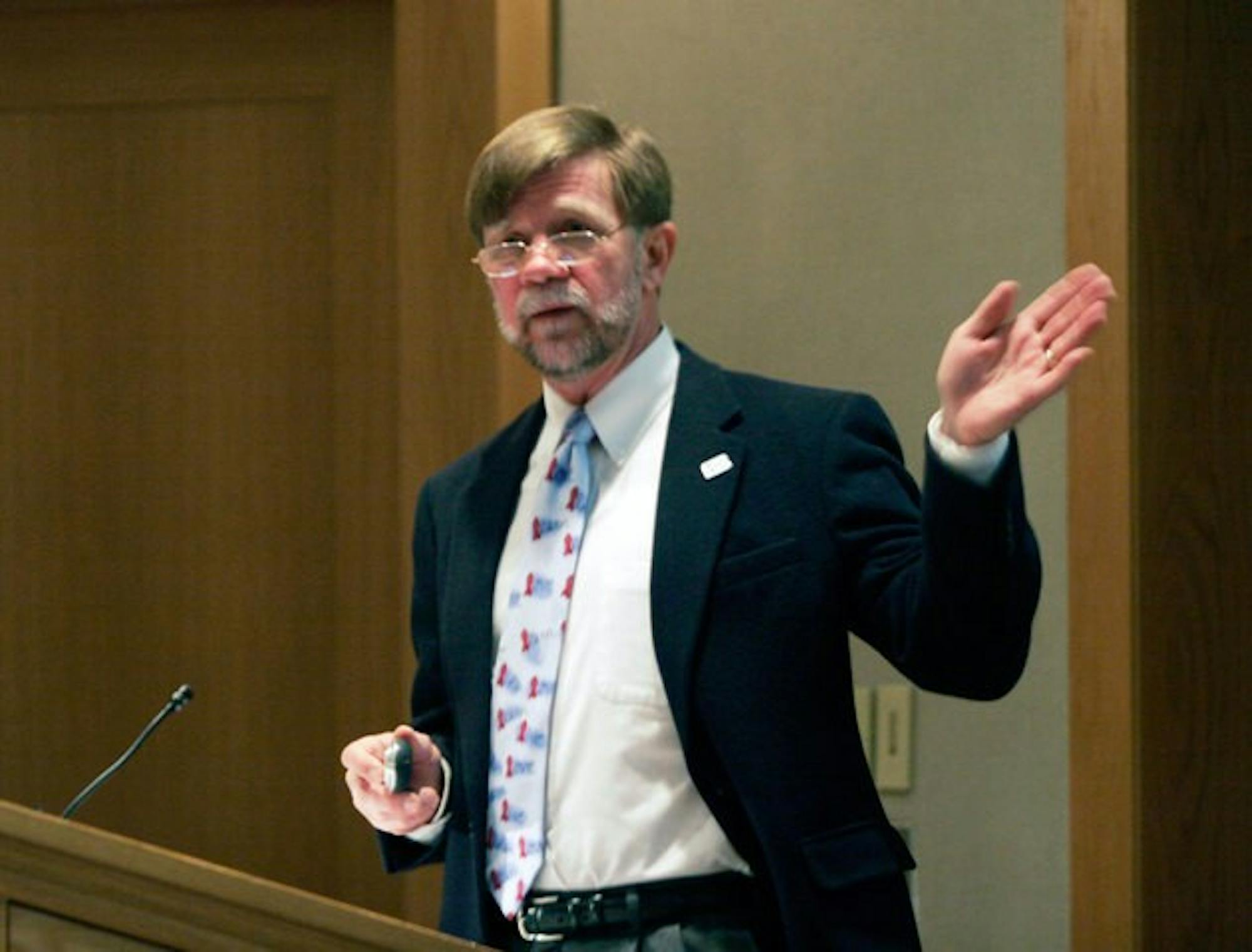Daulaire said that educating young people about AIDS prevention is critical.
"We've got to deal with AIDS, where it is coming into the population, and that's usually with young people," he said.
Explaining all of the options available for AIDS prevention -- including abstinence, monogamy, and condom use -- is also vital, Daulaire said.
"In places where condoms are universally available but where the other options have been laid out for young people as well, it has made a difference," he said, citing Botswana as an example of a place where education has helped slow the spread of AIDS.
Daulaire advocated readily available AIDS care, adding that AIDS medication can now be purchased for as little as $150 a year, and spoke about the lack of care and prevention for other easily treatable diseases like malaria.
"The vast majority of children who die under five die of other, treatable diseases and disorders," he said, adding that for every $100 Americans have, only 17 cents goes to international aid.
Above all, Daulaire said, true progress on AIDS treatment and prevention will not be possible without government support.
"Public health and medicine are social interventions and politics are public health in the most profound sense," he said. "Unless we bring the politics together with the science, we will never make progress."
Sununu, the youngest member of the U.S. Senate, sponsored the Feingold-Sununu Global Health Resolution introduced in 2005. According to the Global Health Council web site, the resolution "seeks to advance U.S. interests by building congressional support for health initiatives that alleviate disease and reduce the number of deaths in developing nations." Sununu spoke about the effects of AIDS on social circumstances, the economy and national security.
"I can't think of an issue that poses a greater humanitarian crisis than HIV and AIDS," he said.
Sununu also cautioned against the tendency to ignore issues of global health in favor of more local issues.
"Every time you have a pandemic that is affecting millions of people around the world, the threat to the United States is very real," he said. "Global health is something we should all take an interest in."
Pandemics like AIDS often completely wipe out social and governmental structures, Sununu said, which can threaten American national security.
Sununu also expressed frustration with trying to make a difference while working in the political system. Despite all of the obstacles associated with AIDS, however, Sununu said he is optimistic about the future.
"I think we have that critical mass," he said. "I look forward to continued success."
C. Everett Koop '37, a former U.S. surgeon general, also spoke on Sunday, addressing the history of AIDS as he experienced during his federal tenure.
After the virus' discovery, President Ronald Reagan asked Koop to write a report on AIDS. It was several years before the report was published, but after it was distributed, controversy arose as a result of the words Koop used, such as vagina, rectum and homosexuality, to make his report more accessible and effective. Conservatives accused Koop of advocating a homosexual lifestyle.
"We had a disease that was a political disease," Koop said. "You wouldn't believe the venom that people had; I was burned in effigy at Georgetown one night."
Eventually, Koop was able to explain the importance of the AIDS epidemic to Reagan, and have it entered into congressional record, an effort he termed his "greatest accomplishment."




